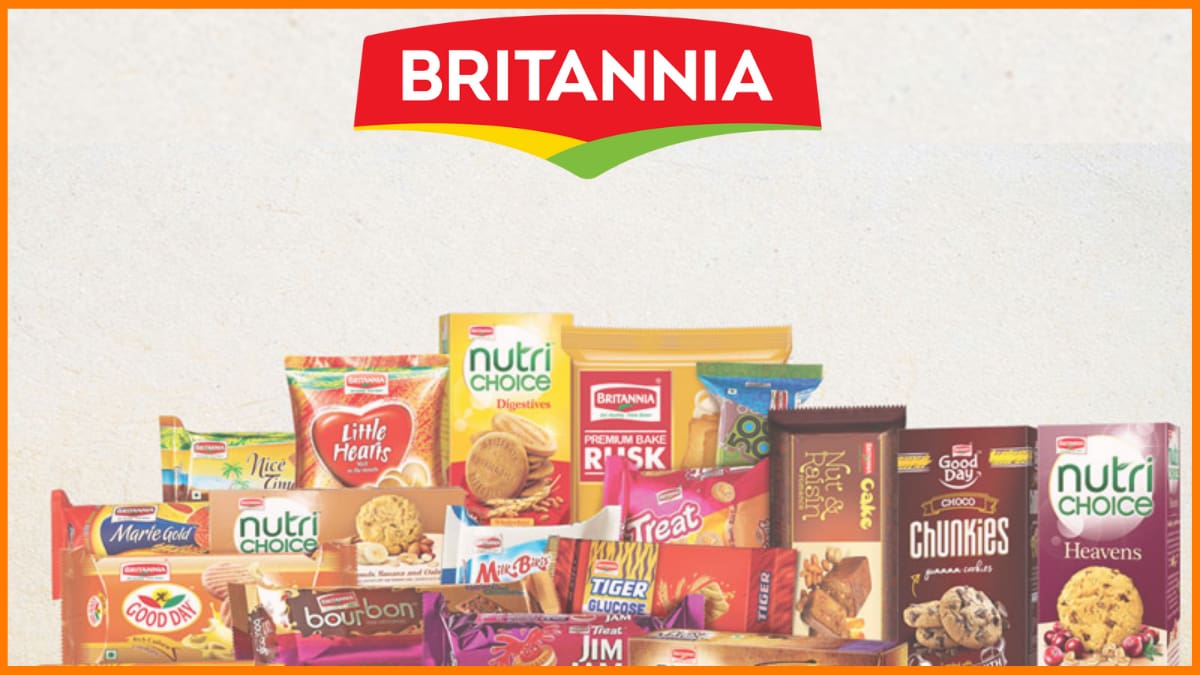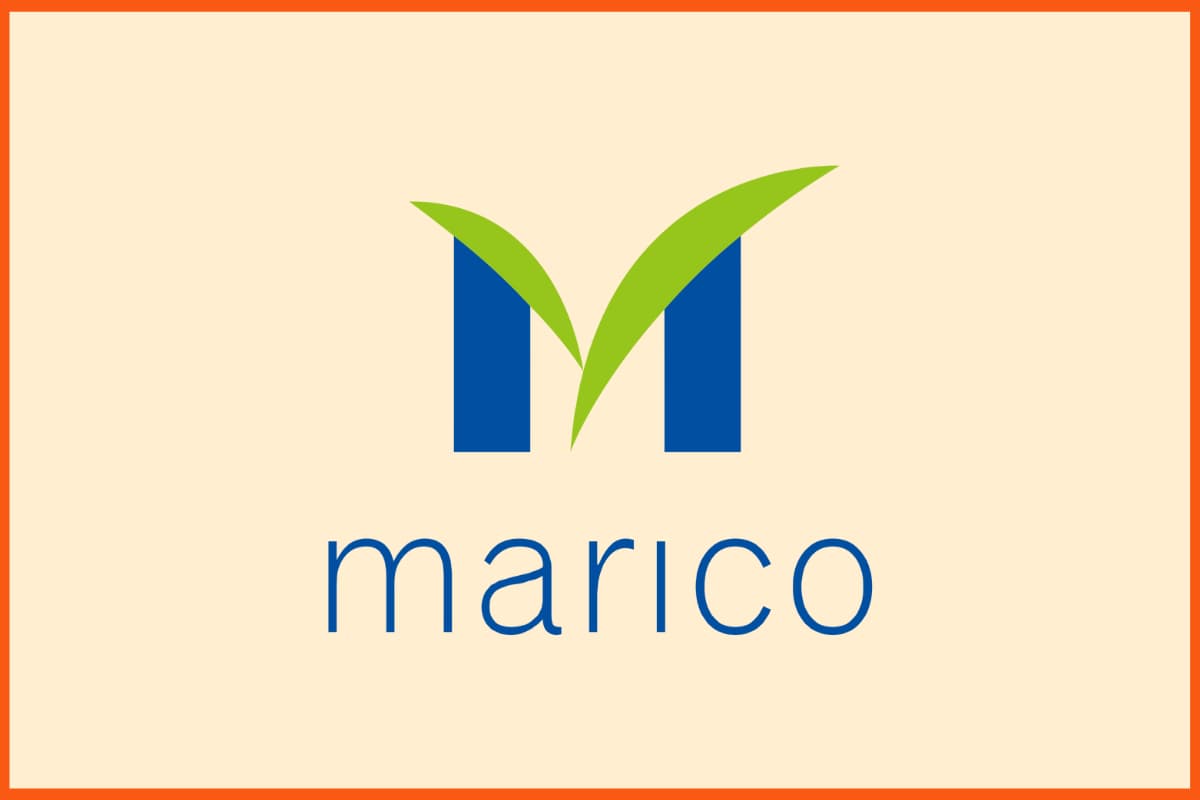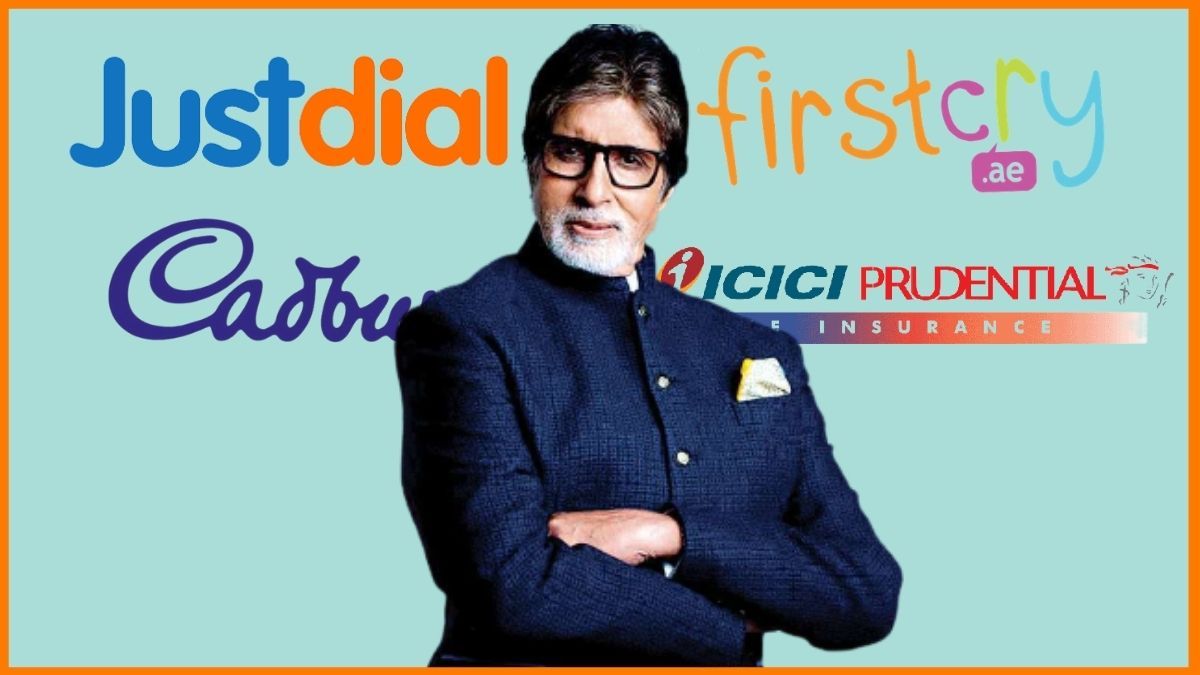Fast-moving consumer goods are products that sell quickly. It also comes at a relatively lower cost. They are being marketed in a lump-sum amount. So, we will cover the top FMCG companies in India that are working every day, all year round.
Accounting for 50% of FMCG sales in India, this sector is the country’s fourth-largest sector, selling all household and personal care items because of the top FMCG companies in India. Also known as consumer packaged goods, FMCGs produce short shelf life.
It is either because of high consumer demand or because they are perishable. These goods are purchased frequently and consumed rapidly. Since they are priced low, they get sold in huge quantities. Keep reading about the Top FMCG companies in India in 2025.
| S. No. | Company | Key Products | Current Revenue (FY24 approx.) | 5-Year CAGR (Revenue) |
|---|---|---|---|---|
| 1 | Hindustan Unilever Limited | Surf Excel, Dove, Lux, Lifebuoy, Bru, Kwality Wall’s | ₹62,800 Cr | ~9% |
| 2 | ITC Limited | Aashirvaad, Sunfeast, Bingo, Fiama, Classmate | ₹82,900 Cr (consolidated) | ~12% |
| 3 | Nestle India | Maggi, KitKat, Nescafé, Milkmaid, Cerelac | ₹19,100 Cr | ~10% |
| 4 | Varun Beverages Ltd | Pepsi, Mountain Dew, Tropicana, Aquafina | ₹16,100 Cr | ~18% |
| 5 | Godrej Consumer Products Limited | Good Knight, Cinthol, HIT, Godrej Expert | ₹13,400 Cr | ~7% |
| 6 | Britannia Industries Limited | Good Day, Marie Gold, NutriChoice, Bourbon, Cheese | ₹17,400 Cr | ~11% |
| 7 | Tata Consumer Product Limited | Tata Tea, Tata Salt, Tata Sampann, Himalayan Water | ₹15,200 Cr | ~10% |
| 8 | Dabur India Limited | Dabur Honey, Chyawanprash, Vatika, Real Juices | ₹12,600 Cr | ~8% |
| 9 | United Spirits | McDowell’s, Royal Challenge, Antiquity, Signature | ₹10,300 Cr | ~6% |
| 10 | Colgate Palmolive (India) | Colgate Toothpaste, Palmolive Soap | ₹5,700 Cr | ~5% |
| 11 | Marico | Parachute, Saffola, Livon, Set Wet | ₹9,700 Cr | ~9% |
Hindustan Unilever Limited
| Company Name | Hindustan Unilever Limited |
|---|---|
| Headquarter | Mumbai |
| Founders | Lever Brothers, United Traders Ltd, Hindustan Vanaspati Mfg. Co. Ltd. |
| Founded | 1933 |
| Market Capitalization | 5,32,276.40 Cr |

Hindustan Unilever Limited is the best FMCG company in India and has had its historical presence in India for over 80 years. It has numerous FMCG brands in India it and specializes in selling household products across the country, including Home Care, Beauty & Personal Care and Foods and refreshments. This is among the top FMCG companies with over 700 million consumers from India using its products, and it aims to make the company a global enterprise.
ITC Limited
| Company Name | ITC Limited |
|---|---|
| Headquarter | Kolkata |
| Founder | Y C Deveshwar |
| Founded | 1910 |
| Market Capitalization | 5,10,679.35 Cr |

A diversified conglomerate dealing with businesses, ITC Limited is known for its largest turnover among the top 10 FMCG companies in India (2021). This company basically aims to develop multiple drivers of growth while remaining the leader in the manufacturing of tobacco.
It is in the list of startup FMCG companies in India that sell everything apart from tobacco; it also produces products including Food, Personal Care, Education & Stationery Products, Branded Apparel, Incense Sticks, Safety Matches, Paperboards, Packaging, Hotels, Agri-Business and lastly, Information Technology.

Nestle India
| Company Name | Nestle India |
|---|---|
| Headquarter | Gurgaon, Haryana |
| Founder | Suresh Narayanan |
| Founded | 1959 |
| Market Capitalization | 2,40,856.10 Cr |

Nestle serves as the largest food and beverage company in the world, which is why it is among the top 10 FMCG companies in India. The company comprises over 200 brands. They generally range from global icons to local favourites. It is currently present in around 191 countries all over the world. Nestle India is the third-largest company on the list of Top FMCG companies in India.
Nestle comprises eight manufacturing facilities along with four branch offices. Compared to all FMCG companies in India, Nestle comprises over 2,000 brands under its wing. Out of all, Maggi noodles is predominantly the most popular brand in the country, making Nestle the startup FMCG company in India.

Varun Beverages Ltd
| Company Name | Varun Beverages Ltd |
|---|---|
| Headquarter | Gurgaon |
| Founder | Ravi Kant Jaipuria |
| Founded | 1995 |
| Market Capitalization | 1,81,745.74 Cr |

A key player in the beverage industry, it holds the 8th rank in the list of top 20 FMCG companies in India. Varun Beverages is not only the top FMCG company in India but also the world’s second-largest franchisee apart from the US for producing carbonated soft drinks (“CSDs”) as well as non-carbonated beverages (“NCBs”). This FMCG listed companies in India under the trademarks owned by PepsiCo.
Sold by Varun Beverages, the products of PepsiCo comprise Pepsi, Diet Pepsi, Mirinda Orange, Mirinda Lemon, Seven-Up, Seven-Up Nimbooz Masala Soda, Evervess Soda, Mountain Dew, Duke’s Soda and Sting, and this is what makes it among the top FMCG companies.
Godrej Consumer Products Limited
| Company Name | Godrej Consumer Products Limited |
|---|---|
| Headquarter | Mumbai |
| Founder | Adi Godrej |
| Founded | 2001 |
| Market Capitalization | 1,23,362.36 Cr |

Being a part of the 122-year-old Godrej Group, Godrej Consumer Products Limited serves as the leading emerging markets company. It is also at the top of the list of startup FMCG companies in India. Besides, it also enjoys the patronage of over 1.15 billion consumers around the globe, which is why it is one of the most trusted consumer companies in India.
The three primary sections of operation are home care, personal care, and hair care. With an eye of 25 per cent market share in the coming three years, it became the top Indian FMCG company.

Britannia Industries Limited
| Company Name | Britannia Industries Limited |
|---|---|
| Headquarter | Bangalore |
| Founder | Nusli Wadia |
| Founded | 1892 |
| Market Capitalization | 1,16,099.72 Cr |

The oldest company on the list, Britannia Industries Limited, holds a legacy of more than 100 years of operation and is one of the best FMCG companies in India. This conglomerate has other FMCG companies or brands in India: Good Day, Milk Bikis, Tiger, NutriChoice and Marie Gold.
Apart from producing biscuits, it also has a hand in producing Bread, Rusk and Cakes. This B2B FMCG company in India also specializes in manufacturing Dairy products, including Milk, Cheese, Beverages and Yoghurt.

Tata Consumer Product Limited
| Company Name | Tata Consumer Product Limited |
|---|---|
| Headquarter | Kolkata |
| Founder | Joint Venture with UK-based James Finlay and Company |
| Founded | 1962 |
| Market Capitalization | 1,09,123.41 Cr |

Tata Consumer Product is a renowned brand that boasts of its association with the Tata Group, known for its ethical practices, customer-centric values, and exceptional quality. This association has helped Tata Consumer Product to earn the trust and loyalty of its customers. The brand offers a vast range of products, including well-known brands like Tata Tea, Tetley, Tata Salt, and Tata Sampann that cater to a diverse market. These products have become a staple in Indian households, and the brand continues to thrive with its commitment to quality and customer satisfaction. It is one of the leading FMCG companies in India.

Dabur India Limited
| Company Name | Dabur India Limited |
|---|---|
| Headquarter | Ghaziabad |
| Founder | S.K. Burman |
| Founded | 1884 |
| Market Capitalization | 91,853.65 Cr |

Dabur India Limited is the leading Ayurvedic and Natural Health Care company and is among the FMCG startups in India. It is among the top FMCG companies because it has been operating for 135 years of experience and rich heritage. These consumer goods companies in India have been divided into three groups of Strategic Business Units.
The main divisions of this FMCG company are Foods Business, Consumer Care Business, and International Business. Consumer Care Business is further divided into Health Care and Home & Personal Care. This is a unique FMCG brand in India that has a wide network distribution. It also covers around 6 million retail outlets with high penetration in both urban and rural markets, making it one of the top 20 FMCG companies in India.
This Simple Idea Changed FMCG Market Forever
United Spirits
| Company Name | United Spirits |
|---|---|
| Headquarter | Bangalore |
| Founder | Angus McDowell |
| Founded | 1826 |
| Market Capitalization | 79,113.95 Cr |

United Spirits, a subsidiary of Diageo, is a renowned name in the world of alcoholic beverages. The company boasts an extensive range of products under its FMCG list, including some of the most popular spirits and alcoholic beverages. These include iconic brands like McDowell’s No. 1, Royal Challenge, and Signature, among others. United Spirits is a dominant player in the Indian market, thanks to its diverse portfolio covering various spirits categories.
Apart from being a leading player in the industry, United Spirits is also committed to empowering women leaders. The company has taken several measures to ensure the safety and well-being of its female employees. These include arranging special night shifts and establishing partnerships with cab services to ensure that women employees can commute safely. United Spirits’ commitment to gender equality and its efforts towards empowering women leaders make it a truly admirable organization.

Colgate Palmolive (India)
| Company Name | Colgate Palmolive (India) |
|---|---|
| Headquarter | New York |
| Founder | William Colgate (Colgate), Burdett J. Johnson (Palmolive) |
| Founded | 1806 |
| Market Capitalization | 71,122.88 Cr |

Colgate-Palmolive India holds a prominent position in the Indian market for oral and personal care products. The company boasts an impressive portfolio of toothpaste, toothbrush, and mouthwash brands, including some of the most recognized names such as Colgate Strong Teeth, Colgate Total, and Colgate Max Fresh. Colgate Palmolive India’s products have gained immense popularity and have become synonymous with dental hygiene in India, serving millions of consumers and contributing to their overall health and well-being.

Marico
| Company Name | Marico Limited |
|---|---|
| Headquarter | Mumbai, Maharashtra, India |
| Founder | Harsh Mariwala |
| Founded | 1990 |
| Market Capitalization | ~69,000 Cr |

Marico Limited, founded in 1988, is a leading Indian consumer goods company. It sells popular brands like Parachute, Saffola, and Set Wet, and its products reach over 25 countries.
In 2025, Marico is focusing on innovation and digital transformation. The company uses data to understand customers better, improve marketing, and create new products, especially in the health and wellness space with items that support immunity and well-being.
Marico also takes sustainability seriously—using eco-friendly packaging, cutting carbon emissions, and supporting education and healthcare projects. Its goal is to grow while also making a positive impact on people and the planet.
Conclusion
The growing awareness, changing lifestyles and easier access have been the key development drivers for this sector. The urban segment contributes the largest share of the entire revenue that the top FMCG companies in India are generating. The FMCG market has witnessed faster growth in rural India compared to urban India due to the increasing number of FMCG startups in India. Also, these FMCG-listed companies in India’s semi-urban and rural segments are growing rapidly. The FMCG products account for up to 50% of the overall rural expenditure.
FAQs
What is a FMCG company?
In the FMCG industry, manufacturers often sell the goods to wholesalers, who sell them to retailers, who sell them to consumers.
How to start a FCMG company?
- First of all, determine the form of your business.
- Apply for the Trade License from the Municipal Authority.
- Additionally, apply for MSME Udyog Aadhaar online registration.
- Apply for the ‘Consent to Establish’ from the Pollution Control Board.
- Obtain the GST registration.
What are the top FMCG companies in India in 2024?
The best FMCG companies in India are Varun Beverages Ltd, Tata Consumer Products, Dabur India Limited, Godrej Consumer Products Limited, Godrej Consumer Products Limited, Britannia Industries Limited, Nestle India, and Hindustan Unilever Limited.
What is the rank of FMCG in India?
The FMCG industry is the fourth largest sector in the Indian economy. Household and personal care products account for 50% of the sales in the industry, healthcare accounts for 31-32% and food and beverage accounts for the remaining 18-19%.
What is the biggest FMCG company?
The top FMCG Companies in 2024 by Revenue & Profit are Nestle AG, Johnson & Johnson, Procter & Gamble, Pepsi Co, and Unilever.
Which are the FMCG products?
Fast-moving consumer goods are non-durable products that sell quickly at relatively low cost.
Is Nestle an FMCG company?
Yes, Nestle is among the top FMCG companies in India.
Is Britannia a FMCG company?
Yes, Britannia is amongst the top 10 FMCG companies in India (2024).
Which is the biggest FMCG company in the world?
P&G is the biggest FMCG company in the world.






























